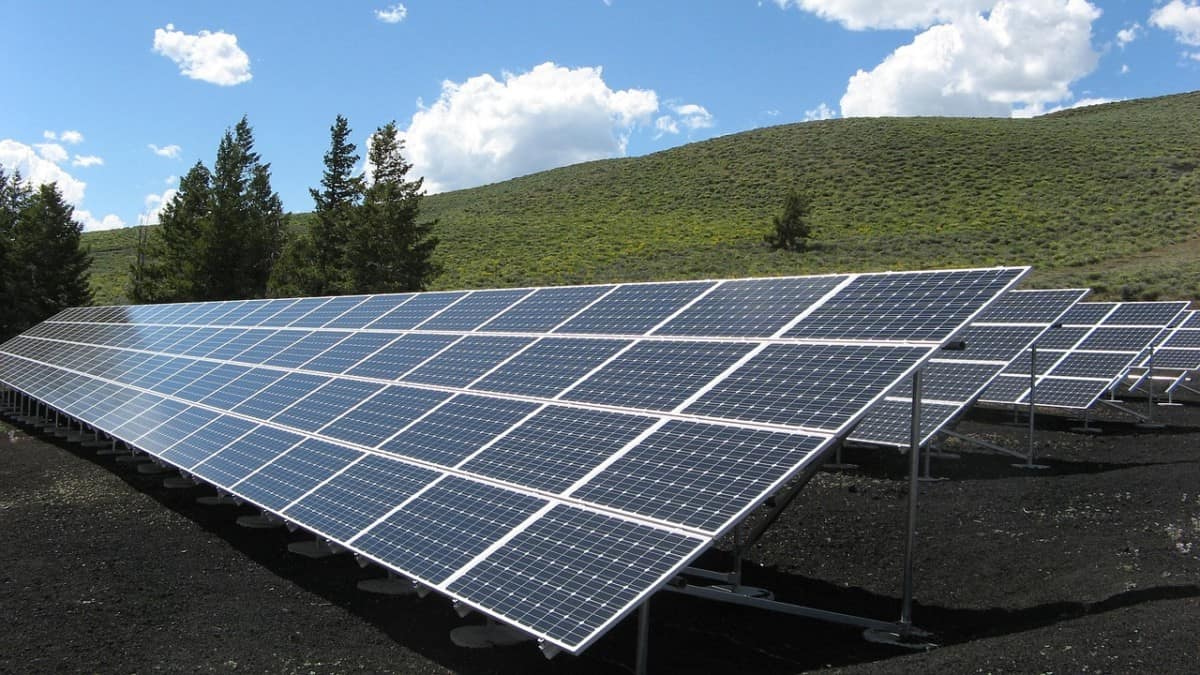Is Solar Energy Renewable or Nonrenewable?
The quick and simple answer to the question, is solar energy renewable or nonrenewable is YES it is a renewable source of energy.
But why? Well scientists believe that the Sun has another 5 billion years of energy left in it for us to harvest.
On a human time scale we would receive a constant source of energy, therefore making it a renewable source of energy.
Using Solar Panels to harvest the Sun’s energy is also a clean process. As it emits no pollutants of greenhouse gases which is excellent for the environment too.
Is Solar Power Renewable? – (WATCH THIS)
Why is Solar Energy Renewable
Comparing solar energy to fossil fuels such as coal and natural gas that we have to mine for we quickly see that fossil fuels are classed as finite, meaning that once we have exhausted their supply we can never replace them and we will eventually run out of them one day, thus making fossil fuels nonrenewable resources of energy.
Every day the Sun will rise and Earth will be flooded by the Sun’s rays for us to harvest, generating hot water and electricity daily, no matter the strength of the Sun in regards to the seasons or adverse weather.
A List of 6 Renewable Energy Sources
Solar energy
Biomass energy
Wind energy
Tidal energy
Hydro energy
Geothermal energy
A List of Non Renewable Energy Resources
Non renewable energy resources are carbon based fossil fuels such as the ones listed below.
Coal
Natural Gas
Oil
Nuclear Energy
What is the importance of solar energy ?
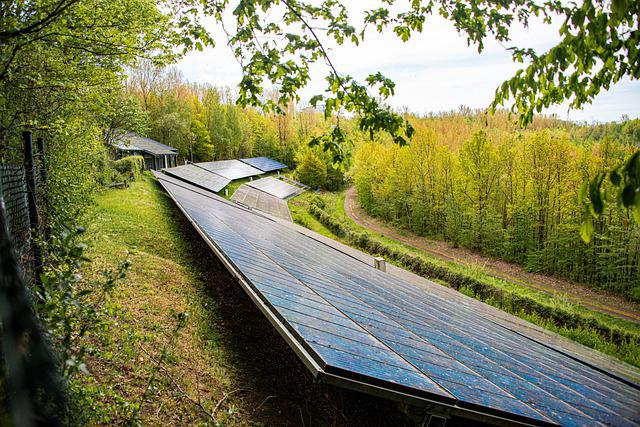
The importance of solar energy to us is that of it being an important renewable energy resource permitting us to generate electricity and heat water on a daily basis for free and that’s only mentioning two uses of this limitless solar supply.
Yes, of course we have to pay for the initial manufacturing of solar panels, but once installed they burn no fuel which is great for the environment.
One other importance of solar energy is that it becomes a low maintenance and low cost source of energy.
Solar energy being a clean and safe source of energy not only combats climate change by reducing Carbon dioxide levels but lessens the risk of health hazards as there are no pollutants to breath in.
A basic standard from any PV system is that solar panels will last at least 25 years.
STOP and think about the effect this will have on the environment during that time span and then scale it up if more solar panels were deployed in your City, thus making solar energy a cheap and reliable energy source.
So what will happen once solar panels reach the end of their efficiency? Well we can simply recycle them by extracting the elements that go to construct them such as copper, glass and aluminium.
These elements can then be used to make new or refurbished solar panels instead of ending up in landfill sites etc.
What is the importance of solar energy ?
The importance of solar energy to provide electricity or hot water for small isolated villages to large towns could be solved by utilizing land that cannot be farmed such as deserts, land unsuitable for growing crops or inhospitable terrain such as steep hillsides.
This may prevent the destruction of habitats where animals live and bread or the destruction of forests, the lungs of the world.
As we become more informed about the benefits of solar energy more and more people around the world are starting to install solar panels on their properties and companies are developing products and services related to solar power.
This in turn creates more job opportunities as demand increases.
Once you have solar panels installed at home, you then become financially free of rising energy bills that seem to increase annually.
When you produce your own electricity and become independent of utility companies you lesson the chances of blackouts when the utility company fails to supply you with electricity for numerous reasons, such as downed cables.
If you’re producing your own power you will not be affected by this, you simply carry on!
You may even have a surplus amount of energy stored in batteries at home which you can then sell back to the utility company, wouldn’t that be nice?
Solar Energy Renewable or Nonrenewable
Supporting clean energy:

Clean energy is important for many reasons. It protects our environment, it’s renewable and it supports jobs.
When we use clean energy, we’re not burning fossil fuels, so there are no harmful emissions released into the air. This is great for our environment and helps reduce climate change.
Renewable energy comes from natural sources that can be replenished, like the sun and wind.
This means we can rely on these sources to power our homes and businesses for years to come.
And finally, when we invest in clean energy, we’re supporting alternative energy jobs. The solar industry is booming right now and employs more people than coal mining.
So by making the switch to clean energy, we’re helping our economy, too!
Will solar energy be used more in the future?
Solar power is a choice, a great one however, there are places where wind turbines will be a much preferable alternative over solar power, why?
You can make your decisions on this, shady spots against blustery spots. But solar energy is produced from the Ultra Violet rays, which reach solar panels even on a cloudy day.
Thus, my decision is, solar power energy not exclusively will profit in the future, it will be an important innovation for financial advancement in numerous nations.
It’s something exceptionally simple to do at home or anyplace else, to start with this you can get a manual “do it without anyone else’s help” and start accepting the advantages of these green innovations.
All the information has shown that solar energy will be used more in the future on large scales.
How Solar Energy Helps the Environment
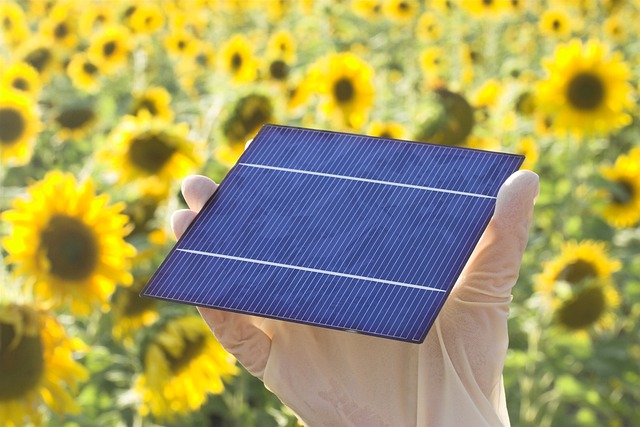
Solar energy is a renewable resource that helps the environment in multiple ways.
Solar energy is a renewable resource that helps the environment in multiple ways. It is an inexhaustible source of energy that does not release pollutants into the air like fossil fuels do.
This makes it a more environmentally friendly option, especially when compared to other energy sources.
In addition, solar power can help reduce our reliance on foreign oil, which strengthens our economy.
Solar energy is also a great way to reduce your carbon footprint, making you part of the solution for climate change.
Solar Energy Renewable or Nonrenewable
Reducing carbon emissions:
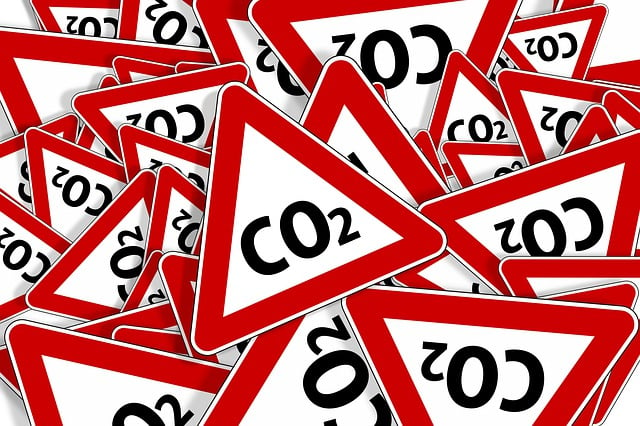
Ways to reduce carbon emissions. It explains that emissions from human activities are the main cause of climate change.
The article lists some ways to reduce emissions, including reducing energy consumption, using less polluting transportation, and investing in renewable energy.
The United States has not been doing a good job of reducing emissions.
It says that in 2018 the country’s total carbon emissions were at their highest level in three decades, and they are expected to rise another five percent by 2020.
Uses of solar energy:
Solar energy is used for a variety of purposes, including electricity, heating, cooling, and cooking.
Solar energy is one of the most important and widely used forms of renewable energy. It can be used to generate electricity, heat homes and businesses, produce hot water, and even desalinate water.
In recent years, solar energy has become increasingly affordable and more people are converting to solar power.
One of the main reasons that more people are switching to solar power is the cost. With a good solar panel system, you can expect to save about $100 a month on your electricity bill.
Reducing emissions:
Solar energy helps to reduce greenhouse gas emissions and other pollutants which contributes to global warming.
These renewable sources of energy such as photovoltaic cells help reduce the environmental impact caused by nonrenewable energy sources that have been used on a large scale since the industrial revolution.
Solar energy is an important resource for reducing greenhouse gas emissions and other pollutants.
Solar panels convert sunlight into electricity, which can be used to power homes and businesses.
In addition to reducing emissions, solar energy also helps to conserve natural resources. Solar energy helps to conserve natural resources by reducing greenhouse gas emissions and other pollutants.
Also, solar panels use less than 3% of the water used by traditional power plants, and about 90% of the land area required for a conventional power plant.
Solar Energy Renewable or Nonrenewable
Saving water:
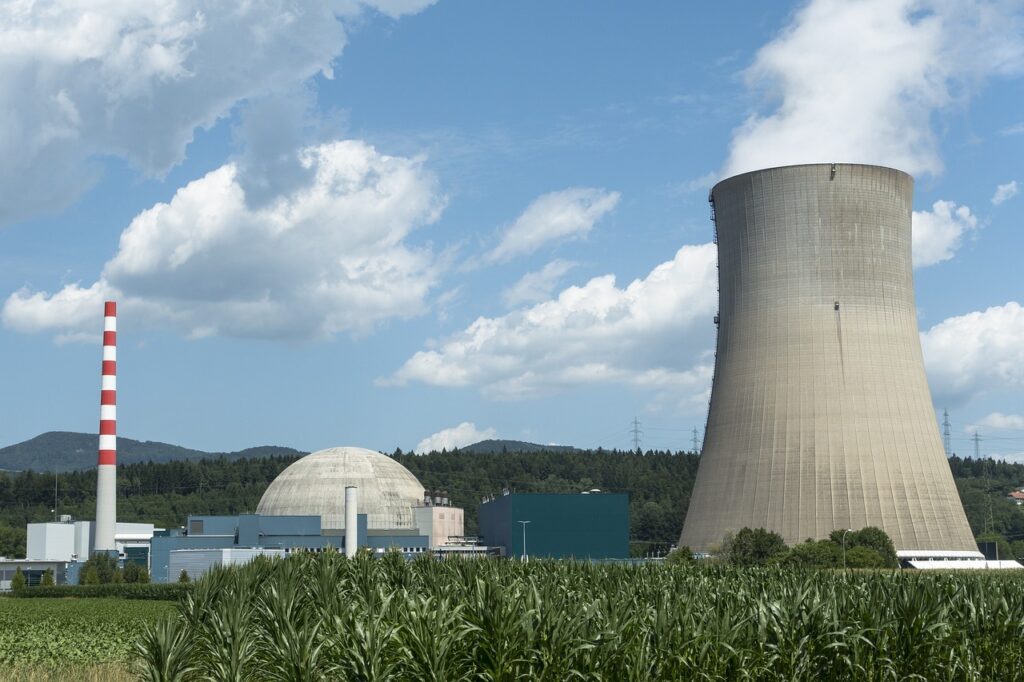
Solar energy can help save water by reducing the need for traditional power plants.
Solar energy is becoming a more and more popular source for power.
Not only is it environmentally friendly, but it also helps reduce the need for traditional power plants, which require a lot of water.
In California, in the united states for example, solar energy has helped saved 2.4 billion gallons of water in the last five years alone. That’s enough water to supply over 200,000 people with drinking water for an entire year!
Protecting habitats:
Solar energy can help protect habitats from being destroyed by power plants.
Solar energy can help protect habitats from being destroyed by power plants. By using solar energy as a clean energy, we can reduce our reliance on fossil fuels, which in turn will reduce the number of power plants that are built.
Solar energy is a clean and renewable source of energy, and it does not produce emissions that can harm the environment.
So using sustainable energy sources is a fantastic way to reduce the environmental effects caused by fossil fuels that have been used over the past decade and longer.
5 Frequently Asked Questions About Is Solar Energy Renewable or Nonrenewable?
Is Solar Energy Renewable or Nonrenewable?
Solar energy is a renewable resource. It relies on the continuous and sustainable energy provided by the sun’s radiation, making it a clean and virtually inexhaustible source of power.
Is Solar Energy a Renewable or Nonrenewable Resource?
Solar energy is undoubtedly a renewable resource. It harnesses sunlight to generate electricity or heat water, and this process can be repeated indefinitely as long as the sun continues to shine.
How does solar energy differ from nonrenewable energy sources?
Solar energy differs from nonrenewable sources like fossil fuels (e.g., coal, oil, and natural gas) in that it relies on the sun’s energy, which is abundant and sustainable. Nonrenewable sources are finite and deplete over time.
Can solar energy be depleted like nonrenewable resources?
No, solar energy cannot be depleted in the same way nonrenewable resources can. As long as the sun continues to shine, it will provide a consistent source of solar energy, making it an infinitely renewable resource.
What environmental benefits does solar energy offer compared to nonrenewable energy?
Solar energy offers several environmental advantages over nonrenewable sources. It produces no greenhouse gas emissions, reduces air and water pollution, and helps combat climate change. Unlike nonrenewable resources, solar power is a sustainable and eco-friendly energy option.
Some Advantages of Solar Energy
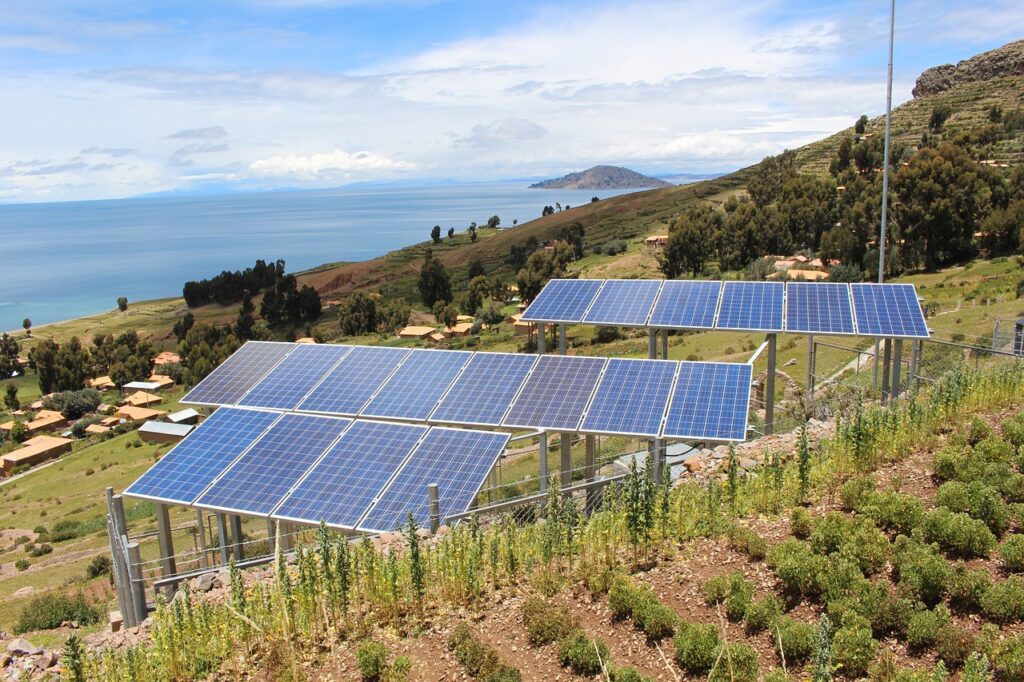
There are numerous advantages of solar energy, yet what is the best?
That is somewhat emotional, in this way, because of that, here’s one essayist’s interpretation of what the best advantage of solar energy is.
I have a whole article named Updated Solar Energy Advantages and Disadvantages which is an interesting read.
• Free, Abundant and Renewable
What number of energy sources would you be able to portray as free, plenteous and sustainable? The appropriate response is one – solar energy.
What’s more, in that untruths presumably the best advantage of solar energy, the way that there is such a large amount of it and that it contacts us at no expense to us.
And that it’s there for us every single day, 365 days per year. It is difficult to envision a more noteworthy preferred position.
The sun’s energy contacts us in the types of light and warmth, and we all can exploit that energy for nothing consistently.
Indeed, in all honesty, you most likely as of now are exploiting it, although you may not understand it. Without a doubt, I’d know whether I was using solar energy.
Wouldn’t I have solar power boards on my rooftop?
Remember that we said solar energy was free and plenteous?
However, that is actually what you’re getting each day when you open your window hangings and let the daylight and warmth in to supply you with free light and warmth.
This is an idea known as inactive solar energy. So is the solar energy renewable or nonrenewable?
And if you have materials in your home that can hold heat, for example, solid floors and dividers, these materials will retain heat, keeping your home cool throughout the late spring, and discharge the warmth as the temperature in your home cools, keeping you warm around evening time.
• Protecting the Environment
The next is the most well-known ecological advantage of solar energy.
There is no mystery in the way that over exploitation of the Earth’s non-sustainable assets will lead to their lack of greater expenses and outrageous contamination.
We can’t depend on non-renewable energy sources to make energy since this asset will in the end vanish.
What’s more, proceeding to consume petroleum derivatives will prompt significantly more contamination than today, and this will influence the atmosphere and individuals’ wellbeing.
Going to a perfect, protected, sound and inexhaustible source of energy gets basic.
• No Pollution

Solar isn’t just free and plenteous, it’s additionally contamination free.
The warmth and light we get from the sun is delivered because of the regular procedures of the sun. And creates no toxins or carbon outflows.
Photovoltaic power is created by solar boards or pv cells employing a procedure known as the “photovoltaic impact”. Which produces DC (Direct Current) power from the response of daylight on materials, for example, selenium and silicon.
The procedure uses no fuel to start it so no carbon outflows are engaged with the age of the power. And no carbon emanations or poisons are delivered because of the procedure.
Power provided by the service organizations is predominantly produced utilizing petroleum products. Which results in a lot of carbon discharges and contamination. All of which contributes legitimately to the developing marvel known as a dangerous atmospheric deviation. Which is representing a genuine risk not exclusively to the earth. Yet in addition to huge numbers of the lifeforms whose presence is being undermined by the fast changes occurring in nature.
• Get Your Electricity Free
If you somehow happened to put resources into a solar electric framework, you would not exclusively be helping the earth by decreasing your dependence on your utility. And therefore diminishing the utilization of non-renewable energy sources and the resultant measure of carbon emanations. Yet you’d likewise be lessening your power bill, or maybe, in the end, dispensing with it.
The greater power created by your solar electric framework, the less power you’ll require from your utility and the lower your power bill will be.
Is Solar Energy Renewable or Nonrenewable
In recent years, solar energy has become increasingly popular as an alternative to traditional forms of energy.
So, is alternative energy renewable or nonrenewable? Solar, an alternative energy is renewable, meaning it can be replenished naturally and does not cause pollution.
However, some people argue that solar energy is nonrenewable because the sun will eventually die out. So, is solar energy non renewable or renewable?
Solar Energy Renewable or Nonrenewable Conclusion:
Is solar energy non renewable? Solar energy is a clean, renewable resource sometimes referred to as green energy that helps the environment in many ways.
So, Solar energy is a renewable resource that helps the environment. Plus, Solar energy helps reduce air pollution, saves water, and reduces greenhouse gas emissions.
And Solar energy can also help reduce the need for fossil fuels, especially with the advance in new technology. Solar panels produce electricity when the sun shines on them.
The more panels there are, the more electricity they can generate.
Recent Posts
Understanding Energy and Electricity: The Power For Progress
Energy and Electricity Energy and electricity are integral components of modern life, powering everything from homes and businesses to transportation and communication. Without them, the...
The Future of Wind Energy The future of wind energy is set to play a critical role in addressing global energy needs while combating climate change. As renewable energy sources like wind and...


